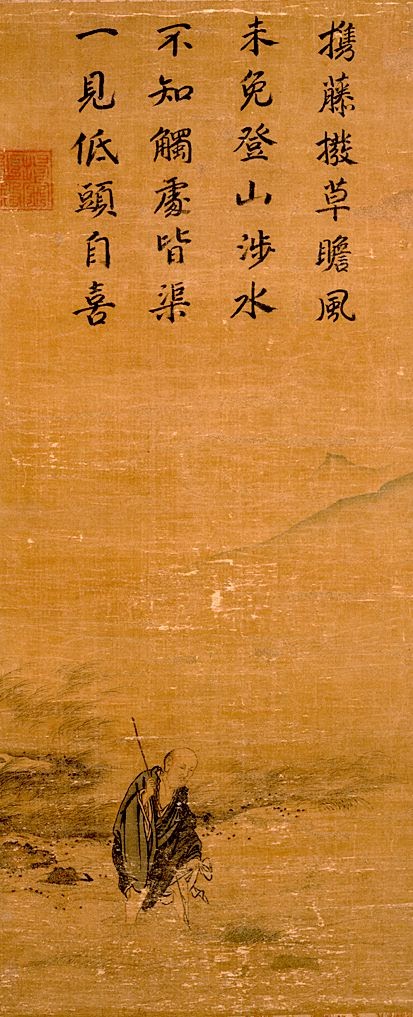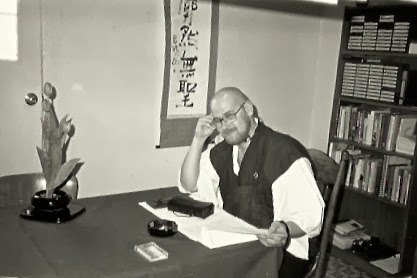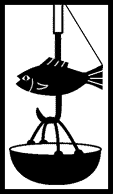
Dongshan Liangjie
eMirror Vol 25, No. 12

Dongshan Liangjie
eMirror Vol 25, No. 12
Friday, March 19th, 2021
Edited by Ven. Jinmyo Renge osho
The White Wind Zen Community:
An international community practising and teaching Dogen’s Zen since 1985.
Dogen zenji says,
The National Teacher Dazheng, of Guangzhai monastery in the Western Capital, was the Dharma-heir of Caoxi, revered and honoured by human emperors and the sovereigns of the shining beings, truly something rarely experienced in the land of China.(1) Not only was he the teacher to four emperors, but the emperor himself led him to the palace in a carriage. As well, after receiving an invitation to Indra's palace, he ascended far into the heavens, where amidst the shining beings he preached the Dharma for Indra.
A monk once asked the National Teacher, "What is the mind of the old Buddhas?" The master answered, "Fences, walls, tiles, stones."
Nanyang Huizhong is also known as Dazheng Chanshi. He lived from 675-775 and was a Dharma-heir of Huineng, the Sixth Ancestor. After receiving the Transmission he went into hermitage on Mount Baiya in Nanyang for forty years. Emperor Xuansong considered him his teacher and the succeeding Emperor Suzong had him dragged from his hermitage in 761 when Huizong was about 81 and had him installed as the court Chan Master. He also served as the Teacher of Suzong's successor Daizong. He was commonly referred to just as the National Teacher (guoshi or kokushi) in Zen texts, and he was deeply respected by all of the early Lineage streams of Chan.
The question and answer cited here by Dogen comes from a long passage in the Jingde Chuandenglu and was a pivotal Teaching, especially for our Lineage Ancestor Dongshan Liangjie. Much of this is relevant to Dogen's comments on the mind of the old Buddhas. Keizan Jokin zenji discusses this at length in his teisho in Chapter 39 of the Denkoroku. All of this is quite clear and so instead of summarizing it or adding commentary to it I will just read that to you.
Keizan zenji says,
Next, Dongshan went to Guishan(2) and said, "I have heard that the National Teacher Zhong of Nanyang(3) had a saying about the Teachings of insentient things. I don't understand the subtleties of it."
Guishan asked, "Can you remember what you have heard?"
When Dongshan said that he did, Guishan asked him to recount it and so Dongshan told the following story:
A monk asked the Teacher, "What is the mind of the old Buddhas?"
The National Teacher answered, "Fences, walls, tiles, stones."
The monk asked, "But aren't those just insentient things?"
"They are," replied the Teacher.
The monk asked, "Yet they can expound the Dharma?'
The Teacher said, "They are always Teaching, clearly, without end."
The monk asked, "Why can't I hear them?"
The Teacher said, "Perhaps ‘you' don't hear them, but you shouldn't get in the way of the one who does."
"Who can hear it?" the monk asked.
The Teacher said, "All the sages can."
The monk asked, "Do you hear it?"
The Teacher said, "No."
The monk said, "If you can't hear it, how do you know that insentient things can teach?"
The Teacher said, "It's your good fortune that I don't hear it because then I would be the same as the sages and you wouldn't be able to hear my Teaching."
The monk asked, "In that case, usual beings can have no part in it."
The Teacher said, "I teach usual beings, not sages."
"What happens to usual beings who can hear you?" the monk asked.
"They are no longer usual beings," said the Teacher.
The monk asked, "What sutra is the ‘Teaching of the insentient' based on?"
The Teacher said, "Clearly, ‘Words that do not accord with the classics are not the talk of a scholar.' Haven't you read the Flower Garland Discourse? It says, ‘The earth expounds the Dharma, beings expound it, throughout the three times everything expounds it.'"
When Dongshan had finished recounting this story, Guishan said, "I also teach this here but I rarely find any who can understand it."
Dongshan said, "I don't understand. Please, teach me."
Guishan raised his dust-whisk and asked, "Do you understand?"
Dongshan said, "No. I don't."
Guishan said, "It cannot be explained in words."
Then Dongshan asked, "Is there any one who sought the Way together with you?" When Guishan directed him to Yunyan, Dongshan asked, "What is he like?"
Guishan said, "Once he asked me how a student should serve the Master. I said that you must just cut through all attachment. He asked if he would then be able to avoid disgracing my Teaching. I told him he would get no answer while I was here."
Thus Dongshan leaves Guishan and comes to Yunyan. In the preceding koan, he asks, "Who can hear how the insentient things teach?"
Yunyan says, "The insentient hear it."Dongshan asks, "Can you hear it?"
Yunyan answers, "If I was hearing it, you wouldn't be able to hear my Teaching."
Dongshan says, "Then I don't hear your Teaching."
Yunyan says, "If you can't even hear my Teaching, how will you hear how insentient things teach?"
Dongshan asks, "What sutra contains the ‘Teaching of the insentient'?"
Yunyan says, "Haven't you read the Endless Light Discourse(4) where it says, ‘Water, birds, trees, all without exception recite the Buddha's name, recite the Dharma'?"
At this, Dongshan wakes up. After expressing his realization, Dongshan says to Yunyan, "Still, though, there are deep-rooted conditionings that are not yet exhausted."
Yunyan asks, "What have you been doing?"
Dongshan says, "I do not even practice the noble truths."
Yunyan asks, "Are you happy?"
Dongshan said, "I can't say that I'm not happy. It's like finding a bright jewel in a pile of garbage."
Dongshan also asked Yunyan, "When I want to meet you, what should I do?"
Yunyan said, "Ask the inner chamberlain."
Dongshan said, "I'm asking right now."
Yunyan said, "What does he say?"
When Dongshan was about to take leave of Yunyan, he asked, "After your death, if someone asks me to tell them about you, what should I tell them?"
Yunyan said, "It is just this."Dongshan was lost in thought. Yunyan said, "Having picked up this Great Matter, you must be completely thorough."
Dongshan was still carrying doubts after this, but as he crossed a river he saw his reflection in the water and had great awakening, he understood everything about the previous dialogue. He composed this verse:
"Don't look for it outside
or you put it away from you.
Although I walk alone
I meet it everywhere.
It is all that I am
but I am not what it is.
Know it like this
and you will merge with suchness."Dongshan's journey was now fulfilled and he was free of any traces of doubt. This is the way it happened.
1 Cînasthâna.
2 Kuei-shan Ling-yu (Isan Reiyu), 771-853 was a Dharma-heir of Pai-chand Huai-hai. He appears in case 40 of the Wu-men-kuan and cases 4, 24, and 70 of the Blue Cliff Record, op. cit.
3 Nanyang Huizhong (Nan-yang Hui-chung, Nan'yo Echu), 675?-775? was a Dharma-heir of Huineng. When he was around eighty-five years old he was prezired into becoming the personal Teacher of the emperor Su-tsung and also of his successor Tai-tsung. He was the first to receive the epithet "National Teacher" and often appears in texts as Chung-kuo-shih. He appears in case 17 of the Wu-men-kuan and cases 18, 69, and 99 of the Blue Cliff Record, op. cit.
4 The Amitabha sutra; in this passage the Pure Land is being described and so Yun-yen is pointing to this as the Pure Land now.
-Ven. Anzan Hoshin roshi, continuing the teisho "Subtle and Mysterious Mind", Tuesday, February 15th, 1990, at Dainen-ji, in the series "The Primordially Awakened Way: commentaries on Eihei Dogen zenji's Kobutsushin: The Old Buddha Mind".
Fusatsu:
March 31st.
Keizan-ki
March 21st is the memorial for Keizan Jokin zenji.
Hermitage:
The Roshi is currently in an extended period of "self-isolation" due to underlying health issues until the COVID-19 situation clarifies.
Beginning Instruction in Zen Practice:
For information concerning our Long-distance Training Program, please visit this Web Page: https://wwzc.org/long-distance-training-program
Elizabeth Eve sat a one-day retreat on Wednesday, March 10th at her home in Halifax, Nova Scotia. Tarik Kaya sat a half-day retreat on Saturday, March 13th at his home in Ottawa, Ontario. Brian Lakeman sat a half-day retreat on Sunday, March 14th at his home in Brampton, Ontario.
Due to the Covid-19 Pandemic, it is not possible at this time to schedule retreats in the monastery. If you would like to sit a retreat at home please follow the schedule outlined in this page: https://wwzc.org/retreat-schedule-public-students. We can arrange for a telephone interview or daisan providing this does not conflict with the sesshin or O-sesshin schedule listed above, under “Upcoming Events”.
Saturday, March 20th to Saturday, March 27th
Saturday, March 20th: “Turning the Wheel of the Way” by Zen Master Anzan Hoshin: “Traces of Tracelessness" (teisho 17 of 44)
Sunday, March 21st: SAkN: Infinite Infinities by Ven. Anzan Hoshin roshi: "Points of Experience" (5 of 7)
Monday, March 22nd: “Every Breath You Take” by Ven. Shikai Zuiko o-sensei: “Receiving the Complete Precepts" (Dharma Talk 26))
Thursday, March 25th: "Freedom and Tyranny" by Ven. Shikai Zuiko o-sensei: "Mondo - The Makeup of Coercion" (4 of 4)
Saturday, March 27th: “Turning the Wheel of the Way” by Zen Master Anzan Hoshin: “Your Hair's On Fire" (teisho 18 of 44)
Associate and general students should continue to follow the recorded Teachings schedule for the sitting you were attending at the monastery, and listen to that during your home practice.
You can access the online Recorded Teachings Library at wwzc.org/recorded-teachings-schedule.
You can also use the streaming site at app.wwzc.org to live stream recordings from the online Library. If you have forgotten your password or need assistance with accessing the recorded Teachings, please email schedule@wwzc.org.
Please note that teisho should be listened to in the correct order and with none missed out as themes, metaphors, questions raised and answered evolve in spirals throughout the series.

Photograph of Ven. Anzan Hoshin roshi at Daijozan, mid-1980s,
by Ven. Shikai Zuiko sensei
Ven. Anzan Hoshin roshi has recently completed translation work on some shorter texts by Eihei Dogen zenji from the Shobogenzo. The work on these particular texts is based upon the literal translations that he worked on with Joshu Dainen roshi at Hakukaze-ji around 1977-78 followed by many years of putting them down, picking them up, and polishing. Naturally, more essential texts such as Uji, Genjokoan, Shinjin Gakudo and some 40 others were completed first and have been given extensive commentaries by the Roshi. This batch of texts includes Baike: Plum Blossoms, Ryugin: Howling Dragon, and Udonge: The Udumbara Blossoming and many others are nearing completion. Many of these will be posted on our website over the next few months.
During the January 2020 Sesshin, Ven. Anzan Hoshin roshi presented the following teisho as part of the ongoing series, "The Lineage of Luminosity: Part Two: The Lineage in China”:
January 11th: “Rujing's Broken Broom of Mu”.
During the December 2019 Rohatsu O-sesshin, Ven. Anzan Hoshin roshi presented the following teisho as part of the ongoing series, "The Lineage of Luminosity, Part Two: The Lineage in China”:
December 2nd: Rujing’s Plum Blossoms Again
December 3rd: Rujing’s Flower for Pindola
December 4th: Rujing’s Painting Plum Blossoms
December 5th: Rujing’s Frogs and Worms
Ven. Anzan Hoshin roshi presented the following teisho during the November Sesshin, as part of the ongoing series, "The Lineage of Luminosity: Part Two: The Lineage in China”:
November 9th: Rujing and the Old Plum Tree
"Zen is Not Kidding" by Shikai Zuiko sensei https://wwzc.org/dharma-text/zen-not-kidding
While most of the online Recorded Teachings library is password-protected and only accessible to students of Zen Master Anzan Hoshin, a small selection of MP3 recordings of teisho are accessible to the public at https://wwzc.org/recorded-teachings. Additional recordings will be uploaded periodically.
MP3 recordings of five teisho are currently available:
Dharma Position https://wwzc.org/dharma-position
Eyes See, Ears Hear https://wwzc.org/eyes-see-ears-hear
Embarrassment https://wwzc.org/embarrassment
Ven. Anzan Hoshin roshi's reading of his translation of Eihei Dogen zenji's “Bendowa: A Talk on Exerting the Way” https://wwzc.org/bendowa-talk-exerting-way

Begun by Ven. Shikai Zuiko sensei
Finished by Rev. Fushin Comeau shramon following her death
Continuing on with “Painted Cakes: A Zen Dictionary” a limited edition text written by Anzan Hoshin roshi in the 1980s and last revised in 1994.
Shinrei (J) The sequence of morning bells signaling the beginning of the day at a Zen temple.
Posted March 19th, 2021. New entries are posted every two weeks.

Dogen zenji taught in the Tenzokyokun that the work of preparing and serving meals is "a matter for realized monks who have the mind of the Way or by senior disciples who have roused the Way-seeking mind." In alignment with this, part of Zen Master Anzan Hoshin's samu for the Community involves personally overseeing the activities of the ancient office of tenzo. Ven. Jinmyo Renge osho serves as tenzo and Mishin godo and Saigyo ino offer assistance as tenzo-anja. The following meals were prepared for residents on Monday, Tuesday and Thursday evenings this week:
Monday Yakuseki:
Lundberg Farms short-grain brown rice with butter and baby green peas; blended butternut squash soup with chunks of caramelized onion finished with a drop of cream; black olives, artichoke hearts and plum tomato spears with lemon zest, black pepper and olive oil.
Tuesday Yakuseki:
Mixed grain (calrose and arborio rice, pearl barley); lion’s head meatball soup (chopped firm tofu, minced pork, scallions, ginger, garlic, shao hsing, shoyu, cayenne pepper, chopped water chestnuts) in a broth made from chicken stock, shao hsing, shoyu, sesame oil, hot chili oil, sliced shitake mushrooms and Napa cabbage leaves; salad (green leaf lettuce, frisee, chopped tomatoes, finely sliced white onion, chopped radishes, sliced celery).
Thursday Yakuseki:
Mixed grain (Thai brown and white sticky rice, arborio rice, pearled barley, calrose and brown basmati rice); bulgogi beans (dark red kidney beans, chopped Spanish onion, chopped red and orange bell peppers, chopped poblano peppers, thinly sliced ginger, bulgogi sauce, shoyu); chunks of Asian pear with lime juice and red chili flakes.

If you would like to thank someone for a contribution they have made, please feel free to send an email to Jinmyo osho at rengezo at Gmail dot com, but be sure to type "eMirror" in the subject line.
From Jinmyo osho:
Thank you to the Roshi for the teisho “Five Spheres of SAkN”; to Mishin godo for taking care of many, many administrative details as well as keeping our bookkeeping up to date; to Saigyo ino for weekly food shopping, for overseeing shissui (caretaking tasks) and for the many repairs/alterations that spring up in the 150 year-old monastery. Thank you to Chiso anagarika for transcribing the teisho “Kensho: Seeing Clearly”; to Fushin shramon for feeding the monastery cats and for growing cat grass for them; to David Gallant for IT work in various parts of the monastery and to David and Leonardo for the caretaking tasks they do each week, including ‘sanitizing rounds’.
From Saigyo ino:
Thank you to the Roshi for the stone arrangements around the monastery which brighten and enliven the environment. Thank you to Jinmyo osho for organizing and packing practice materials for long-term storage. Thank you to Mishin godo for preparing excellent meals for residents each Sunday evening. Thank you to Fushin shramon for taking care of Kitsune and Shindo, the monastery cats who lived with Shikai-O-sensei. Thank you to David for finding the best solutions for recycling used computer equipment and to Leonardo for taking care of the monastery kitchen laundry and cleaning cloths. Thank you to Senbo for arranging access to the recorded Teachings for new students. Thank you to George Donovan for St. Patrick's Day gifts to the residents of the monastery.
From Claude Schryer:
Though she has passed, I would like to thank Ven. Shikai Zuiko O-sensei and recognize her teachings in the ‘Every Breath You Take’ Dharma talk series that we are currently enjoying. It is good to hear her voice again and to continue learning from her in this way.
|